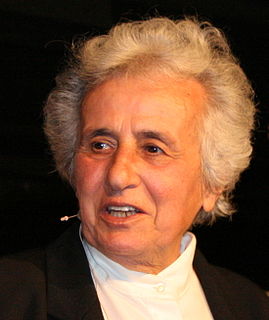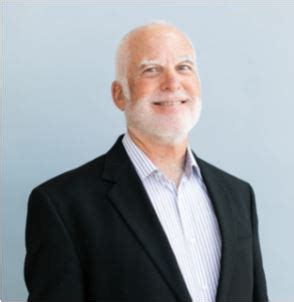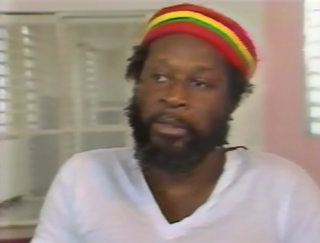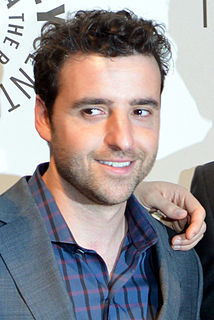A Quote by Anita Lasker-Wallfisch
Auschwitz was one of the wealthiest places in the world. Everyone who was deported there had been in such a hurry that they were only able to take along the things they loved the most. Well, of course, a musician would take along her instrument. But then they would take these precious possessions away from the prisoners once they arrived. All these things were kept in a part of the camp the prisoners called "Canada." It was like a giant warehouse.
Related Quotes
What do you think it would have been like if Valentine had brought you up along with me? Would you have loved me?" Clary was very glad she had put her cup down, because if she hadn't, she would have dropped it. Sebastian was looking at her not with any shyness or the sort of natural awkwardness that might be attendant on such a bizarre question, but as if she were a curious, foreign life-form. "Well," she said. "You're my brother. I would have loved you. I would have...had to.
The whole thing was set up very cleverly. The people who were torn from their normal lives and put on the trains may have heard that terrible things were happening in Auschwitz, but even up to the end, they kept on thinking: Perhaps it isn't so bad after all. And then they arrived and the SS told them: "The old people and the sick can take the truck. Anyone who is still young can walk." It took us a while to realize that the ones who were being driven were really being taken to the gas chambers.
If you wanted to pursue some kind of artistic pursuit and you had another career, then you would definitely fall back on it because it would take so long. I never believed I could do two things at once. The jobs I had were minimum wage jobs that you wouldn't want to pursue for too long, or that couldn't really take over your life.
... there had been the two little boys. Now they were gone, too. They loved her and called her and sent her e-mails and would still snuggle up to her to be petted when they were in the mood, but they were men, and though they would always be at the center of her life, she was no longer at the center of theirs.
A fellow must know where he wants to go, if he is going to get anywhere. It is so easy just to drift along. Some people go through school as if they thought they were doing their families a favor. On a job, they work along in a humdrum way, interested only in their salary check. They don't have a goal. When anyone crosses them up, they take their marbles and walk out. The people who go places and do things make the most of every situation. They are ready for the next thing that comes along on the road to their goal. They know what they want and are willing to go an extra mile.
Of course you can more easily recognise the outsiders because they have a different skin color. But let us take for instance the relationship between the White Anglo-Saxon Protestant majority in America and the negroes. What is important here is that the negroes were the descendants from slaves and were excluded from power, while the white majority kept them at bay, kept them down, kept them where they are. If the negroes in the future became assimilated and acquired equal power access, if there were a black president, then many of these things would change.
To live only to suffer—only to feel the injury of life repeated and enlarged—it seemed to her she was too valuable, too capable, for that. Then she wondered if it were vain and stupid to think so well of herself. When had it even been a guarantee to be valuable? Wasn't all history full of the destruction of precious things? Wasn't it much more probable that if one were fine one would suffer?
Take away material prosperity; take away emotional highs; take away miracles and healing; take away fellowship with other believers; take away church; take away all opportunity for service; take away assurance of salvation; take away the peace and joy of the Holy Spirit... Yes! Take it all, all, far, far away. And what is left? Tragically, for many believers there would be nothing left. For does our faith really go that deep? Or do we, in the final analysis, have a cross-less Christianity?
































